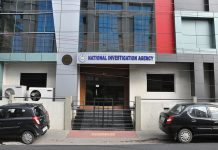This article is written by Pragya Agrahari, a law student at Amity Law School, Lucknow. This article provides a detailed analysis of the National Investigation Agency, its formation, objectives, and various important cases associated with it.
This article has been published by Sneha Mahawar.
Table of Contents
Introduction
The National Investigation Agency (NIA) is the central agency formed to investigate all the offences which tend to affect the sovereignty, security, and integrity of the nation; friendly relations with foreign nations; and offences under the legislation which was established to implement international treaties, agreements, and conventions, etc. of the United Nations, its agencies, and other international organisations. These offences include terror attacks and their connection with other offences like smuggling of drugs, illegal arms, fake currencies, and infiltration from the borders. As Indian borders are already vulnerable to these kinds of organised crimes, they pose a severe threat to Indian security and sovereignty, which needs to be checked upon.
The NIA has its headquarters in New Delhi and its 15 branches in Hyderabad, Mumbai, Kolkata, Chennai, Kochi, Lucknow, Guwahati, Jammu, Raipur, Chandigarh, Ranchi, Bengaluru, Patna, and Imphal. In addition, it also has certain specialised cells dealing with specific offences.
History of the National Investigation Agency
The National Investigation Agency was constituted in the wake of the 26/11 Mumbai terror attack in November 2008. This attack was carried out by 10 gunmen who belonged to the terrorist group, Lashkar-e-Taiba, at various locations in Mumbai like hospitals, hotels, Chhatrapati Shivaji railway station, theatres, etc. More than 150 people were killed and hundreds of people were injured, including various police officers. It took four days to kill 9 of the 10 terrorists. One of the terrorists, Ajmal Kasab, was captured by the forces and hung to death in 2012. This incident raised serious questions about the security of the country as it was revealed after the incident that there were many loopholes in the security management which led the terrorists to enter the country without facing any obstacles.
This terror attack acted as a watershed moment in the Indian government’s preparedness against terrorism. Hence, the then ruling party, the United Progressive Alliance, decided to establish the National Investigation Agency. The National Investigation Agency Bill, 2008 was introduced in December 2008 by then Home Minister P. Chidambaram. After that, it got the President’s assent and came into existence on December 31st, 2008. As a counter-terrorism body, the National Investigation Agency has investigated more than 2050 cases since its inception, and it has a conviction rate of 91.3%.
The rationale behind formation of the National Investigation Agency
The aim was to develop a national police force to investigate a selected class of criminal offences that constitute a direct threat to national safety.
The various reasons appended in the National Investigation Agency Bill, 2008 for its introduction are as follows-
- For a very long time, India has been the victim of cross-border terrorism and several attacks have happened in the past few years.
- These terrorist activities have linkages with international connections and were also associated with other crimes like smuggling of arms and drugs, circulation of fake currencies or infiltration through the borders.
- Hence, it was realised the need for some central agency to investigate such crimes, which were a clear threat to national security.
- Its establishment was also recommended by the Second Administrative Reforms Commission of India in its report titled ‘Combating Terrorism‘.
National Investigation Agency Act, 2008
Salient features of the National Investigation Agency Act, 2008
- It provides for the establishment of the National Investigation Agency to act as a national anti-terrorism body.
- The powers of NIA officers were the same as those provided to the police officers in investigating any offence.
- It creates a schedule of acts under which offences are to be investigated by the National Investigation Agency.
- It has created provisions for the designation of ‘Special Courts’ by the Central Government and the state government, specifying their powers and jurisdiction for the trial of cases.
- It also has a dedicated provision under Section 17 for the ‘protection of witnesses’ keeping in mind the dangers that the witness might face.
- It contains the procedure of how trials and investigations should take place in various cases.
Constitution of the National Investigation Agency
The National Investigation Agency is constituted by an Act called ‘National Investigation Agency Act, 2008’. This law extends to the whole of India and also applies to Indian citizens living outside the country and to the people boarded on ships and aircraft registered in India. This legislation calls for the constitution of the National Investigation Agency by the Central Government. The powers of the agency are kept restricted to the offences under the Acts specified in the Schedule of this Act. The agency has the power to search, seize, arrest, and prosecute the accused and others involved in these offences.
Structure of the National Investigation Agency
The National Investigation Agency is supervised by the Central Government and headed by the Director-General, appointed by the Central Government. The Director-General has the same powers as the Director-General of Police has with respect to the police force in a state. The state government extends all its assistance and cooperation to the National Investigation Agency during the investigation. After investigation, cases were put before the Special Courts constituted under NIA Act.
Jurisdiction of the National Investigation Agency
National Investigation Agency has concurrent jurisdiction, which enables this central agency to probe into any case in any part of the country. It can probe into any offences which affects the sovereignty, security and integrity of the country, threaten friendly relations of the country with other nations or any other offences provided in the Acts which were enacted to implement various international treaties and agreements. The Agency is empowered to probe into any such incidents like bomb blasts, hijacks of aircraft and ships, and other terrorist activities. The Amendment Act of 2019 has further enhanced the jurisdiction of the Agency to probe into various other offences like human trafficking, counterfeiting notes, cyber-terrorism, etc.
Provision of special courts
Section 11 of the Act empowers the Central Government to designate one or more Courts of Session as Special Courts, by issuing notification in the Official Gazette, to carry out a trial of certain offences provided in the Schedule. The Central Government should consult with the Chief Justice of the High Court before designating the court. To clarify doubts in case of more than one special court in an area, it delegates the senior-most judge to distribute the cases before them. Similarly, Section 22 of the Act empowers the State Government to designate the Court of Sessions as a Special Court. These special courts will have all the powers of the sessions court as provided under the Code of Criminal Procedure, 1973.
The appeal from the judgement of this Special Court shall lie to the High Court and this appeal shall be heard by a bench of two judges and should be disposed of within 3 months from the date of appeal. Moreover, the Supreme Court and High Court are empowered to transfer any pending case before one special court to another special court for a speedy trial of the case.
When can the National Investigation Agency investigate
- Upon receiving information through an FIR related to any scheduled offence, the officer-in-charge of the police station shall forward the report to the state government.
- The state government then immediately forwards the report to the Central Government.
- The Central Government will determine whether the offence is a scheduled offence or not within 15 days by considering its gravity and relevant factors.
- After determination, the Central Government shall direct the National Investigation Agency to investigate the said offence.
- The Central Government can also take a suo motu case and direct the National Investigation Agency to investigate.
- After the transfer of the case to the National Investigation Agency, the officer-in-charge of the police station shall not continue the investigation of the transferred case.
- The National Investigation Agency may be directed to take up the case if the Central Government is of the opinion that the scheduled offence has been committed outside India.
- The National Investigation Agency can also transfer the investigation of the case to the State Government with approval of the Central Government.
Offences under the National Investigation Agency Act
The various offences on which the Agency can investigate were provided in the various Acts given in the Schedule of the National Investigation Agency Act.
The Acts provided in the Schedule are-
- The Atomic Energy Act, 1962
- The Explosives Substances Act, 1908
- The Unlawful Activities (Prevention) Act, 1967
- The Anti-Hijacking Act, 2016
- The Suppression of Unlawful Acts against Safety of Civil Aviation Act, 1982
- The SAARC Convention (Suppression of Terrorism) Act, 1993
- The Suppression of Unlawful Acts Against Safety of Maritime Navigation and Fixed Platforms on Continental Shelf Act, 2002
- The Weapons of Mass Destruction and their Delivery Systems (Prohibition of Unlawful Activities) Act, 2005
- Some offences under the Indian Penal Code 1860, the Arms Act 1959 and the Information Technology Act 2000.
Amendments in the National Investigation Agency Act
National Investigation Agency (Amendment) Act, 2019
This Act was amended in 2019 with the aim of including more offences in the Schedule of the Act and with the objective of making the investigation and prosecution carried out by the agency faster and more efficient. It was passed in the Lok Sabha with a majority of 278 votes in favour.
Some key changes after the amendment are as follows:
- It widens the scope of the law as it allows the National Investigation Agency to probe into cases of human trafficking, offences related to counterfeit notes, smuggling of illegal arms, cyber-terrorism and offences under the Explosives Substances Act, 1908.
- It allowed the Centre to designate sessions courts as Special courts for the trial of scheduled offences after consultation with the Chief Justice of High Court.
- It allowed the state governments to designate Sessions courts as Special courts.
- It empowered the agency to investigate and prosecute offences related to the Schedule committed outside India in line with the international treaties and conventions and the laws of the other countries.
Important cases of the National Investigation Agency
Brutal killing of a tailor in Udaipur, 2022
The brutal killing of a tailor by two assailants armed with sharp weapons, took place in Udaipur, after which the assailants also circulated the video of the incident on social media to create panic and terror among the masses of the country. The Central Government directed the National Investigation Agency to take up the case as in their opinion it came under the ambit of Scheduled Offences provided under the National Investigation Agency Act, keeping in mind its gravity and ramifications on national security. NIA was investigating the role of ‘local self-radicalised groups’ to find more linkages about the two prime accused in the incident.
Attack on a convoy of CRPF personnel at Lethpora, J & K, 2019
On February 14, 2019, a convoy of CRPF personnel was attacked by an explosive-laden vehicle with a suicide bomber on the National Highway at Lethpora in the Pulwama district of J&K. The incident’s responsibility was claimed by Jaish-e-Mohammed (JeM) terrorists. In this incident, 40 CRPF personnel attained martyrdom and a number of them were grievously injured. The case has been registered under Section 3 of the Explosive Substance Act and sections 16,18, and 20 of the Unlawful Activities (Prevention) Act, 1967.
Uri Attack, 2016
A group of terrorists attacked the Infantry Brigade Headquarters at Uri, J&K in the early morning of September 18, 2016, which resulted in the killing of 17 army personnel and injuries to 19 others. After a six-hour-long battle, all the terrorists were eliminated. The case was registered under sections 15, 16 and 18 of the Unlawful Activities (Prevention) Act 1967.
Ambush on CRPF Team (Tahakwada incident), 2014
In this Maoist ambush that happened in Sukma, Chhattisgarh, a joint team of 43 personnel from the CRPF and police personnel were attacked by over 100 Maoists. 15 force personnel and one civilian were killed, while three were injured. After the attack, the Maoists looted the arms of security forces and left the spot. The NIA has filed a charge-sheet against 11 people in the NIA court and probed the role of insiders behind the attack. After an investigation, the NIA found the Pakistan-based terrorist group, Lashkar-e-Taiba to be behind the attack.
Italian Marine Case, 2013
The National Investigation Agency registered a murder case against two Italian Marines, who were aboard the Italian ship ‘Enrica Lexie’ in the Arabian Sea and fired on two Indian fishermen, Jelastin and Pinku, off the Indian Coast.
Darbha Valley Attack Case, 2013
The Maoists attacked the convoy of ‘Parivartan Yatra’ of the Congress Party in Jeerum Ghati. The attack resulted in at least 27 deaths, including 10 police personnel, former state minister Mahendra Karma and the Chhattisgarh Congress chief, Nand Kumar Patel. Later, the Congress leader, Vidya Charan Shukla, also succumbed to injuries. Various weapons were looted from the police personnel during the attack.
Bomb blast at Maha Bodhi Temple, Bihar, 2013
Nine serial bomb blasts were caused at the Maha Bodhi Temple Complex in Bodh Gaya. After an investigation by the National Investigation Agency, five were sentenced by the Court in 2018.
Issues with the National Investigation Agency
Debate on the constitutionality of NIA
It was said that the areas of policing and public order lie within the subjects of States and not the Centre. Therefore, the NIA is encroaching on the powers provided to the state. In the case of Pragyasingh Chandrapal Singh Thakur v. State of Maharashtra (2013), it was held by the court that the NIA Act falls within the ambit of Union List viz. (i) Entry1: Defence of India, (ii) Entry 10: Foreign affairs, (iii)Entry 8: CBI and investigation, and (iv) Entry 14: Treaties and agreements with foreign countries. “The NIA can be considered as a Central Bureau of Investigation that Parliament is exclusively entitled to create.”
Suo-moto cognisance by the Central Government
Various issues have been raised against the power of the Central Government to take suo-moto cognisance as the centre can direct for investigation of any case which might fall under the state government’s sphere. Moreover, if the central government decides to get the case investigated by the National Investigation Agency, the state government will have no say in that case.
Issues of federalism
It was contended that the centre enjoys more power under the said Act because of which there is potential for the centre to politically interfere in the functions of states even in routine law and order situations.
Unlawful Activities Prevention Act and the National Investigation Agency
UAPA authorises the government to arrest citizens even on mere apprehension of the commission of a crime under Scheduled offences. Moreover, it grants vast discretionary powers to the Centre, like the power to designate individuals as ‘terrorists’ which can be misused against political opponents.
A tool to counter ‘dissent’
There is a lack of independence in the agency’s functioning and in its way of conducting investigations fairly. There are chances of these officers acting like a ‘pawn’ in the hands of the government, which can be used to counter dissent from the people and opposition.
Conclusion
The establishment of the National Investigation Agency seems to be a revolutionary step taken against terrorism and other types of organised crime in India. Its ultimate objective is only to strengthen India’s security system by checking offences having the potential to threaten India’s security. It turns out to be promising for regaining the faith of people in India’s security system, which deteriorated in the 2008 Mumbai Terrorist attack.
Moreover, concerning its issues related to federalism, one thing is clear that the National Investigation Agency cannot work properly without cooperation from the respective states. Therefore, a new approach needs to be adopted to make the whole process inclusive of the States.
Frequently Asked Questions
What is the main function of the National Investigation Agency?
The National Investigation Agency is a central counter-terrorism body that investigates and prosecutes offences that threaten the country’s national security.
How is NIA different from CBI?
CBI stands for the Central Bureau of Investigation. CBI is the central body responsible for a criminal investigation in the country whereas NIA mainly focuses on counter-terrorism activities and conducts investigations in the cases related to it.
Can NIA take suo motu cognisance of terror-related cases taking place in the country?
Yes, NIA can take suo motu cognisance of terror-related cases in any part of the country, as provided under Section 6 of the NIA Act.
Can the State Government investigate offences provided under the Schedule of NIA Act?
Yes, the State Government can investigate offences provided under the Schedule of the NIA Act. As per Section 10 of the NIA Act, the powers given to NIA to investigate and prosecute Scheduled offences do not affect the investigations conducted by the State Government.
What were the changes brought by the National Investigation Agency (Amendment) Act, 2019?
The major changes after the Amendment Act of 2019 are as follows:
- Broadening its scope by the addition of more offences to the Schedule,
- Empowerment of the Central and State Governments to designate Sessions Courts as Special Courts,
- Expansion of its jurisdiction to investigate offences committed outside India.
References
- ‘Indian Polity’, M Lakshmikant, Sixth Revised Edition.
- https://www.nia.gov.in/
- https://www.drishtiias.com/daily-updates/daily-news-analysis/national-investigation-agency-2
- https://www.humanrightsinitiative.org/programs/aj/police/india/police-reforms/issues_paper_on_the_national_investigation_agency_act_2008.pdf
- https://www.mha.gov.in/sites/default/files/THENATIONALINVESTIGATIONAGENCYACT2008_03032020.pdf
Students of Lawsikho courses regularly produce writing assignments and work on practical exercises as a part of their coursework and develop themselves in real-life practical skills.
LawSikho has created a telegram group for exchanging legal knowledge, referrals, and various opportunities. You can click on this link and join:
Follow us on Instagram and subscribe to our YouTube channel for more amazing legal content.
 Serato DJ Crack 2025Serato DJ PRO Crack
Serato DJ Crack 2025Serato DJ PRO Crack












 Allow notifications
Allow notifications


